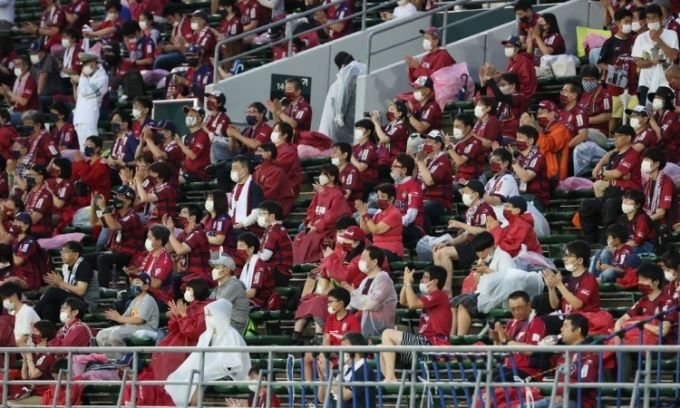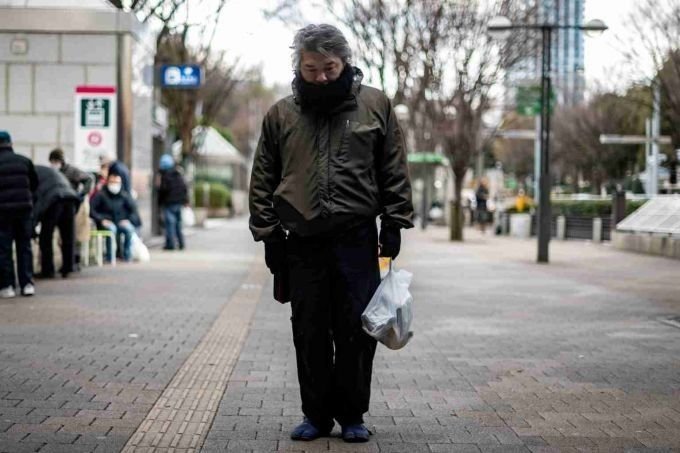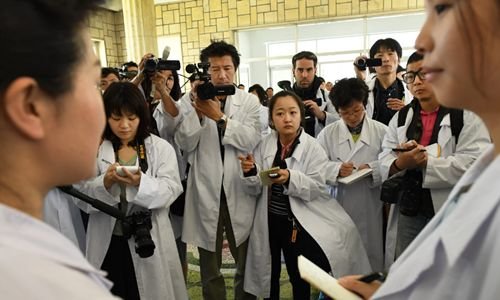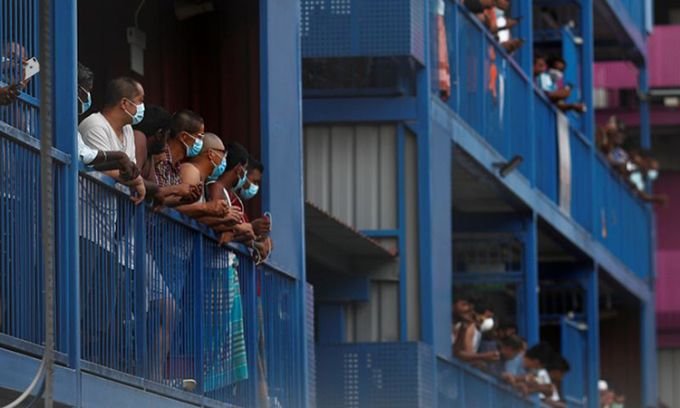
‘nCoV bomb’ is waiting to explode in Singapore
`14 rooms, 12 people in each room, must share one toilet. If one person is infected with nCoV, all of us can be infected. Even though this toilet is cleaned twice a day, I still feel uncomfortable.
This person said he believed that other migrant workers here were also not fully instructed on how to prevent nCoV.
Migrant workers at dormitory S11 at No. 2 Seletar North Link.
Migrant workers account for one-sixth of Singapore’s 5.7 million population.
Poor and cramped living conditions turn the dormitories of migrant workers in Singapore into potential `Covid-19 bombs`, which can explode at any time, when they do not have enough space to protect themselves.
`The concept of social distancing in workers’ dorm rooms is laughable. All the social distancing measures they maintain outside won’t make much of a difference,` non-governmental organization Transient Workers Count
Not only do they share cramped dorm rooms, these poor migrant workers also have to share dining rooms and restrooms with dozens of others, according to Luke Tan, head of social affairs at the Humane Society
Local media have also highlighted poor living conditions in worker dormitories, such as kitchens full of cockroaches or overflowing toilets.
`These factors are the perfect conditions for a rapid and widespread outbreak,` Tan said.
Singapore, a country once considered a `role model` for fighting Covid-19 in Asia, is struggling to cope with a second outbreak, mainly due to `imported` infections.
Singapore has so far detected nearly 1,400 cases of infection, of which more than 150 cases are related to 7 worker dormitories and nearly 30 other cases are related to construction sites.
`We are all extremely scared. It could happen to any of us,` Kalyanadurai, a worker in the S11 dormitory, shared.
On April 5, Singaporean officials ordered the quarantine of two dormitories, S11 and Westlite, in Toh Guan, requiring workers not to go out for two weeks, but they were still paid and provided with three meals per week.

Bangladeshi workers line up to receive masks at dormitory S11.
However, many people warn of the dangers of this plan.
Meanwhile, John Gee, a member of TWC2, said migrant workers want to protect themselves, but feel confused when receiving instructions on social distancing from the Singapore government.
Many immigrant workers said they are not only concerned about unsafe living conditions, but also about the possibility of having their wages cut or being fired.
Aayu, a 35-year-old worker living in the Westlite dormitory in Toh Guan, said he and everyone here are provided with free meals, wifi and regular Covid-19 news updates.
`Everyone is worried, but we always try to share good things with our families so they can worry less. If my salary is cut by about 10%, it means I have to cut down on my meals during the holidays.`
Aayu added that he received an email from Singapore’s Ministry of Manpower informing him that he would discuss with companies to make a final decision on workers’ salaries.
Dipa Swaminathan, founder of the nonprofit organization Raining Raincoats, said any income cuts would have a big impact on migrant workers and their families.
`Even in the best of times, immigrant workers still have a lot of financial worries. Therefore, when times get the best of them, they will have no alternative plan. They are standing by
Manpower Minister Josephine Teo admitted that improving living conditions in worker dormitories was important, but pointed out that this would increase costs for business owners.
`I hope Covid-19 can show employers and public opinion that improving living conditions in worker dormitories is not only the right thing to do, but it is also in the interests of the government.`
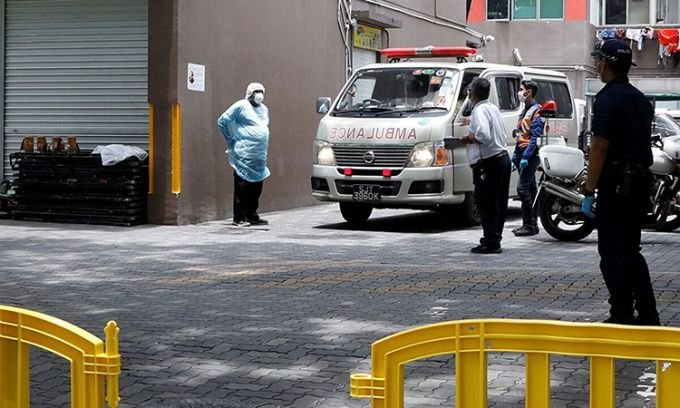
An ambulance parked outside the quarantined Westlite dormitory on April 6.
Meanwhile, many social activist groups are stepping up to help migrant workers, providing essential supplies and guiding them to implement social distancing measures, such as advising workers to avoid contact with people.
Luke Tan said he hopes Covid-19 can motivate city officials to resolve outstanding issues related to workers’ housing.
`Singapore benefits greatly from the achievements that migrant workers bring, while the costs are very low. We owe it to them and their families, so we need to do everything we can to protect them`
